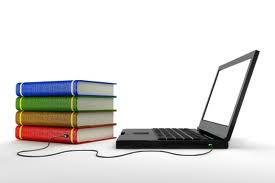“The simplest schoolboy is now familiar with truths for which Archimedes would have given his life.”
~ Ernest Renan (Souvenirs d'enfance et de jeunesse, 1883)

Philippine society places a premium on education. Most Filipino parents consider education as one of the most important legacies they can impart to their children, and are willing to make enormous sacrifices to send their children to school. Despite budget cuts (#$%@!!!), the Philippine government also extends certain privileges to the education sector and formulates policies that are intended to promote education. One example is the tax exemption for real property used by non-stock non-profit educational instutitions, actually, directly and exclusive "for education purposes." Another example (which I believe is the law usually alluded to by our professor in Law and ICT) is the exception carved out for education's sake in Philippine copyright law: FAIR USE.
But foreign books are still expensive!!!
And then came e-books.
I've actually tried buying a used paperback copy of a foreign book I'm interested in from Amazon, but apparently the seller doesn't deliver to countries other than the US. So I thought about buying an e-book.
But foreign e-books are still expensive!!! The cheapest foreign e-book is about $10. That's about a 120-page book. The price of e-books are proportional to the thickness and academic value of the book. I just can't afford the $150++ e-book I need.
It boggles me. We're supposedly in the information age, but as the law of economics goes, higher demand, higher prices (I got it right this time I hope). More than half a century since the Florence Agreement, and we're anywhere but near the idea of free flow of information. Sure, there are lots of available information on the internet. Thank God for SSRN, I could at least do some rough research work at home. But the really good information is on WESTLAW, LEXISNEXIS, JSTOR, etc. (no point linking here because the sites require passwords).
Now... Going back to FAIR USE. Section 185.1 of the Intellectual Property Code (RA 8293) states:
185.1. The fair use of a copyrighted work for criticism, comment, news reporting, teaching including multiple copies for classroom use, scholarship, research, and similar purposes is not an infringement of copyright x x x
So... out of desperation, taking 185.1 into consideration + the Florence agreement + my educational purpose, I decided to ... download. You get what I mean. And thank God for the international network of desperate AND generous scholars, I got the e-books I need. Now, my friends refer to me as the resident librarian. Hey, I'm just the simple schoolgirl.
... Or maybe, we're back to Archimedes' time, and I'm up for the big kill.
Salma F. Angkaya
Entry #5

No comments:
Post a Comment